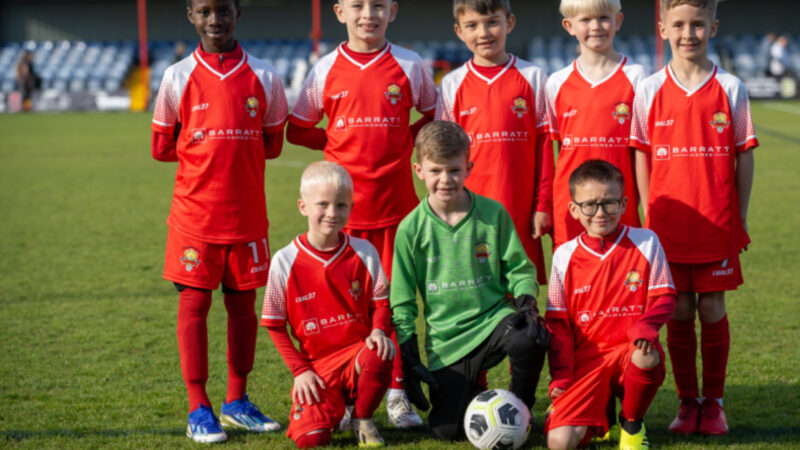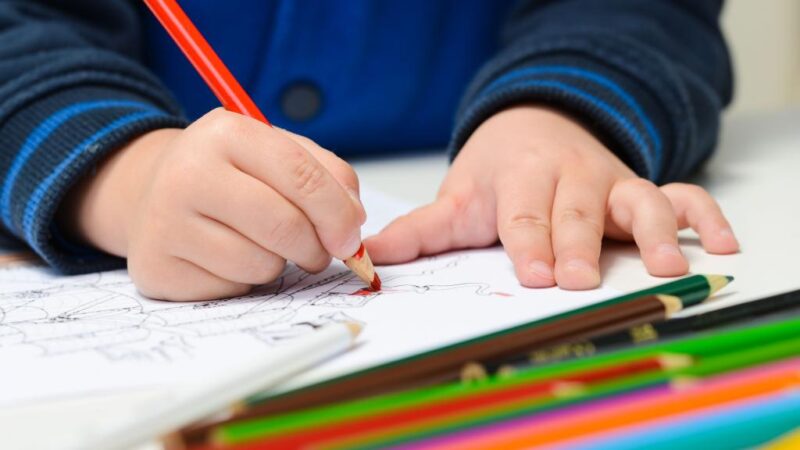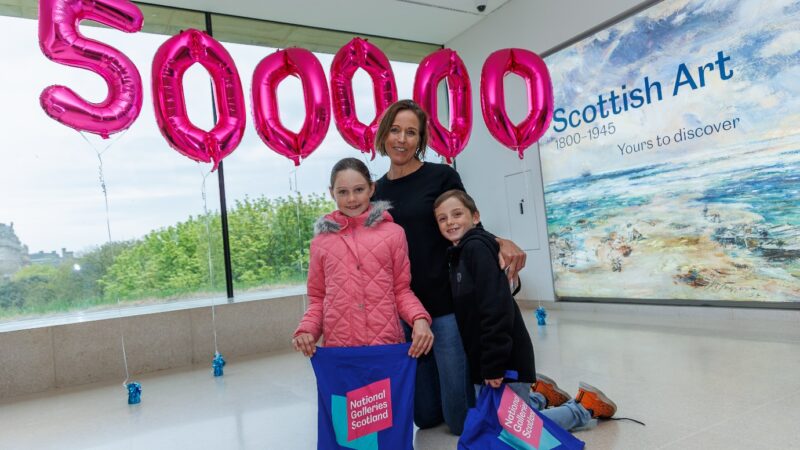On a cold, dark January day, it is hard to believe that any garden or open space is actually teaming with life, but this is what the new lesson that children from Snaresbrook Primary school star in, will show. The children from the South Woodford school were thrilled to take part in the lesson, as the school is already leading the way with school gardening initiatives. In the lesson the RHS (Royal Horticultural Society) education team and students show how plants adapt to different environments, but also delve into the hidden life in a winter garden and the wellbeing benefits of getting outside year-round. Tes has joined the RHS to produce this lesson which schools can choose to live stream into their classrooms on the 31st January, or download and run at any point this term. The lesson is curriculum-linked to science and is aimed at primary school aged children. There has been much research on the wellbeing benefits of getting out into green spaces and gardens and the impact this has on school aged children. In a recent report the Office for National Statistics highlighted that one in eight households do not have access to a garden or shared outdoor space in the UK, which rises to one in five in some urban areas. Another survey, carried out by the Government and Natural England, demonstrated the positive role of nature in supporting children’s well-being, with eight in ten (83%) children interviewed agreeing that being in nature made them very happy. The impact on wellbeing for children spending time outside was also highlighted, where two in five (40%) adults agreed that their child seemed happier when they have spent time outside. During the winter months, due to shorter days and miserable weather, children often spend more time indoors, but this lesson will demonstrate that gardens aren’t just for the warmer seasons and provide year-round benefits for people and planet. The lesson takes place in RHS Garden Harlow Carr, near Harrogate in Yorkshire, and explores how plants adapt to different environments to survive, comparing the adaptations sub-tropical and Alpine plants need to cope with light, wind, moisture and temperature levels in their habitat. The variety of different plants found in our gardens means that there is always something to do, as flowering, fruiting and growth occurs throughout the year depending on a plant’s adaptations. Suzanne Moss, Head of Education & Learning at the RHS, says: “This lesson is an opportunity for children to understand how amazing plants are and the incredible ways they adapt to their environments. The fact that it is so easy-to-run for teachers makes the live lesson a really good entry point for schools. The RHS offers educational visits to its five gardens as well as running the Campaign for School Gardening which aim to make sure every young person in the UK has the opportunity to develop a meaningful connection to nature and make a positive difference as they learn to take care of plants and our planet. We are hoping this lesson will lead to schools engaging with the other free programmes we offer.” Rose McDermott, KS2 Curriculum expert & middle leader at Snaresbrook Primary School in South Woodford said “We were thrilled to be involved in this Live lesson with Tes and the RHS, as we recognise the importance of outdoor and woodland learning already at Snaresbrook. Our existing projects have shown how children can learn so much from getting involved in growing plants and getting their hands dirty. There really is no better way to teach these topics!” Havva Baskal, Head of Partnerships at Tes, added “The whole point of the live lessons is that they are an easy way for teachers to run an interactive lesson that ticks the curriculum boxes whilst giving children exposure to new ways of learning their topics. Taking the outside in during these cold winter months is great, but it will also encourage kids to get out and explore. The lesson will be offered as a recording after it has streamed, making it flexible enough to fit into anyone’s timetable whenever they decide to teach it.” A Tes poll* showed that 70% of teachers feared that spending cuts forced by rising costs were likely to prevent them from delivering the broad and balanced curriculum required this year, which is why Tes has partnered with a select number of brands to deliver curriculum-linked lessons with a twist – offering students all over the country new and exciting content across a range of subjects and that all important ‘cultural capital’ that is required by the government. This is the fourth lesson Tes has released from their year-long programme of free, easy-to-use interactive lessons in a range of subjects and key stages.

Employees around the world are seeking working conditions which look vastly different to the pre-Covid era. After having a taste of fully remote workdays and having more time to themselves, there’s now a demand among the workforce for flexible jobs which don’t involve commuting into the office each weekday morning.
Many workers have taken to social media platforms to share their experiences with seeking the right work-life balance for them. One such recent example was seen when TikTok user zaidleppelin revealed he was quitting his corporate tech job after feeling ‘stuck’.
He shared a clip describing his final day at the company, where he decided to take a novelty trip into the office and actually work there for a change. To his surprise, it was a much better experience than he thought.
The TikToker said: ‘I quit my corporate tech job and thought I’d show you guys what my last day of work looked like, if you’re ever curious about the ‘offboarding’ process at a tech company.
‘I was a fully remote worker during my time at this company, but decided to go into the Boston office for my final day because I wanted to finish strong and say goodbye to some of my co-workers.
‘The idea of going into the office at all while I worked at this company repulsed me. Something about the feeling of being surveiled. But I decided for my first meeting to go into a cute gypsy-themed coffee shop.
‘My first meeting of the day was an exit interview where they basically wanted to know why I was leaving. I tried to balance honesty with professionalism, as much tea as I wanted to spill.
‘Then I took the train downtown. It was actually quite a nostalgic commute as this was the route I would take to my internship in college.
‘Once I arrived at the fancy office building, I was badged in, and I was genuinely taken aback by how nice the office space was. I mean, it’s a brand new space, but still – jaw drops. Almost makes you want to come in.
‘No one else had that idea! Granted, it was a Friday, but the office was completely deserted. I decided to seize the moment and soak in my final few hours of being a corporate baddie. I also got to catch up with like, the two work friends that I made. It’s hard as a remote worker, okay?
‘I had a final sync with my work bestie and then I returned my work computer. Then I momentarily pondered whether I made the right decision in leaving. But I know I did. Life is too short to feel stuck. You are capable of change.’
A spokesperson from Digital Adoption said: ‘This TikToker has described the office building as new, which could be part of an incentive from the company to try and lure employees back to work.
‘Clearly, though, the Great Resignation is continuing as people find less appeal in working corporate jobs. Interestingly, in this example, the former employee did have the flexibility to work remotely or in the office as he prepared, but he still wanted to leave.
‘He also referenced only having two work friends, and feeling that he was being constantly monitored. In a post-pandemic world where hybrid and remote working is increasingly becoming the norm, it’s vital for companies to ensure they aren’t overdoing it when it comes to overseeing productivity – and ensuring there are still opportunities for people to connect remotely.






